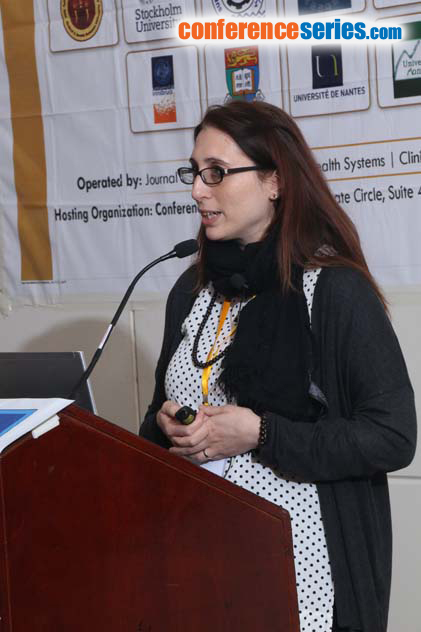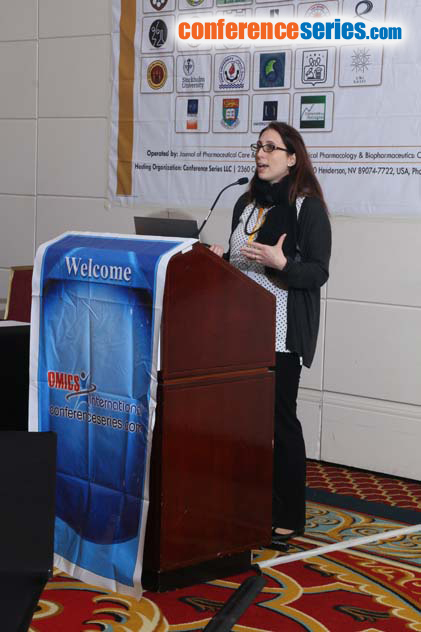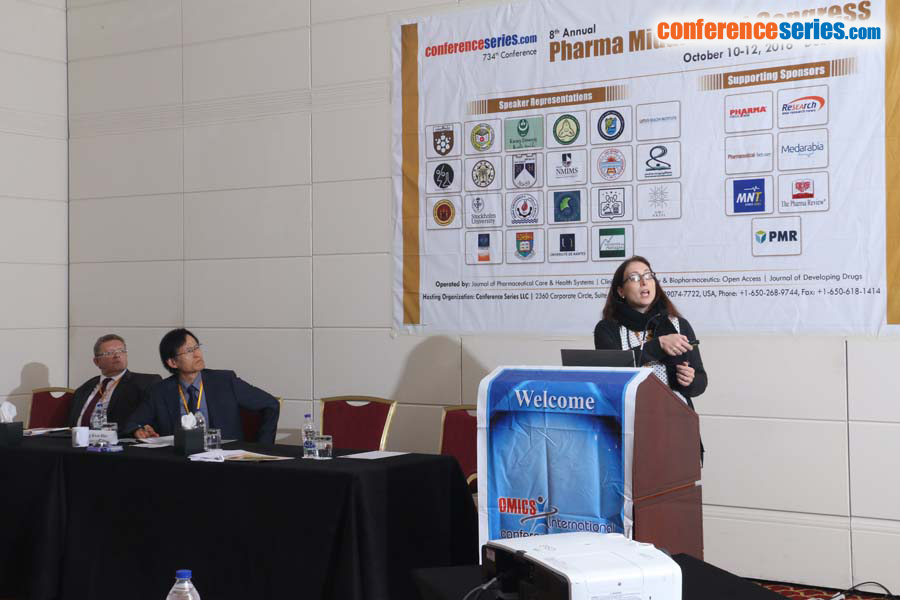
Biography
Biography: Fabiola Porta
Abstract
Polymer vesicles are attracting much attention as alternative nano-delivery system to implement drug targeting strategies. Polymersomes have several interesting features; for instance, ease of chemical modification of the polymer chains can be used to modulate their tissue specificity and organ distribution. A wide variety of polymers is available, however a good candidate for pharmaceutical formulations is the di-block copolymer poly(dimethylsiloxane)-b-poly(2-methyloxazoline) (PDMS-PMOXA). This polymer is formed by two subunits which are FDA approved for use in human and for pharmaceutical applications. In this work, we present an innovative polymer vesicle formulation with PDMS-PMOXA di-block copolymer able to specifically target hepatocytes. PDMS-PMOXA polymersomes have been chemically modified with asialofetuin (AF), a desialylated glycoprotein whose uptake is mediated by the hepatocyte asialoglycoprotein receptor. AF was conjugated on the surface of PDMS-PMOXA polymer vesicles. The protein retained the initial functionality upon chemical modification, allowing a successful uptake of polymersomes in human liver carcinoma cells (HepG2). Active uptake of modified PDMS-PMOXA polymersomes was successfully demonstrated using fluorescence activating cell sorting (FACS) analysis. Biocompatibility of PDMS-PMOXA polymer vesicles has been investigated using an alternative animal model as the zebrafish. PDMS-PMOXA polymer vesicles have shown similar properties compared to long circulating nanoparticles; moreover, they uniformly disperse in the blood circulation, and no protein aggregation was observed. In conclusion, active targeting of HepG2 cells using AF modified PDMS-PMOXA polymersomes was successfully achieved. We envision that PDMS-PMOXA polymersomes can act as a platform to develop innovative drug delivery systems with tunable features for clinical applications.







